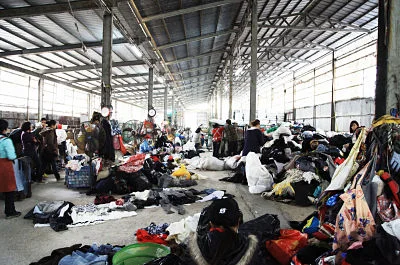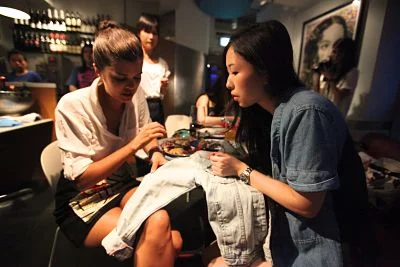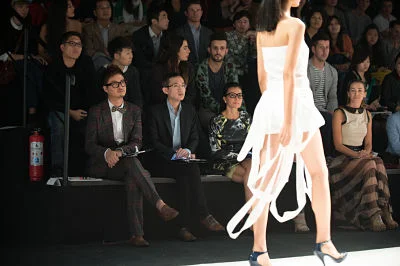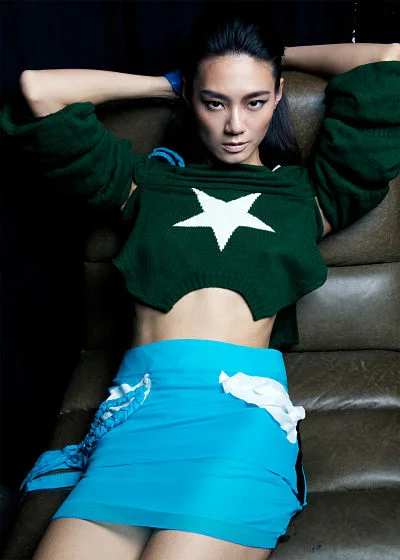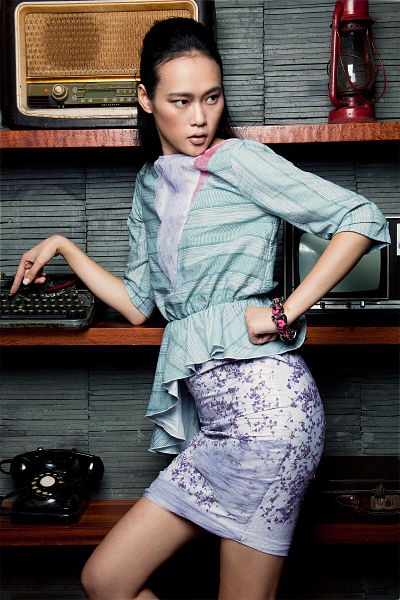Dr Christina Dean is serious about waste
By BEL JACOBS
The EcoChic Design Award was launched in 2011 by Redress, an NGO promoting sustainability in fashion. Before you throw up your hands and say 'not another one', take note that Redress, founded by Christina Dean, is based in Hong Kong - and that the former colony is gateway to the rest of China where environmental issues are immediate and pressing. Asia will see huge growth in population, in consumption, in development and industry. Stakes are high and the Design Award and Redress are playing their part in shaping a more sustainable focus. I talk to Dean about eco-fashion in the East.
Pioneering environmentalism is associated with Western countries. In the East, how receptive are people to these concerns?
Across Asia, particularly in China, we've seen an increase in environmental awareness in general. People are particularly angry and concerned about pollution, which is known to have a direct relationship to people’s health. These concerns are slowly playing out in consumption habits. For example, there is more interest in buying organic and natural food products, driven by widespread fears of food safety, and beauty products. However, these products are very aspirational and often only for the elite in terms of price. Sustainable fashion is slower, but awareness is rising, with organic cotton growing in children’s clothing. We’re also witnessing vintage shops in Shanghai, Singapore, Taipei and Hong Kong, bringing secondhand clothes slowly into acceptance. Particularly in Hong Kong and partially due to our efforts, we’re seeing more sustainable designers working with textile waste, alongside clothes swapping parties and second hand sales.
Bel: Why is Asia important to eco-fashion?
Christina: It's the world’s garment factory, awash with waste and pollution. Much retail growth in the next few years will be in Asia, as more middle class consumers emerge and hit the shops. There is a huge opportunity to educate consumers as they first start spending and a responsibility to provide them with better products. We’ve tailored our projects so they have a strong Asian focus. The EcoChic Design Award, for example, has its roots in Hong Kong although we now include pan-Asia and European regions. We included Europe because we wanted to unite innovation in the East and West.
Bel: What are the aims of the award?
Christina: To inspire emerging designers to create high-appeal clothing with minimal textile waste; to teach them how to create desirable clothing via zero-waste, up-cycling and reconstruction. We provide prizes which change designers’ perceptions about sustainable design. For example, this year’s winner will design a collection for China’s leading luxury brand, Shanghai Tang.
Bel: What is the criteria?
Christina: Excellent design that does not compromise on sustainability. Designers must submit one mood board and three designs using at least one sustainable technique such as zero-waste, up-cycling and reconstruction. Applicants are marked for creativity and originality, sustainability and marketability. For this cycle, the brief was to design a ‘Modern China Chic’ collection for a dynamic, modern woman aged 25-40 who has a sophisticated appreciation of China’s modern style.
Bel: What is the greatest challenge?
Christina: Education. Our survey of designers in Asia found that a resounding 97% wanted sustainable fashion education, but lacked access. Without this access, designers are powerless. It is estimated that the designer influences up to 90 per cent of the environmental and economic costs of a product.
Bel: Are you worried?
Christina: No, I’m excited and positive. There is a general awakening to two things. Firstly, consumers are thinking more about where, how and who made their clothes. Secondly, there is a growing distaste for cheap, poorly made clothes. Consumers here have realised that, if you buy cheap, you buy twice. Increasingly, we will see tastes value good fashion again. It's very encouraging. There is a huge opportunity to reduce impacts within the industry and to be more creative.
The EcoChic Design Award 2014/15 is now open and accepting entries until 15 Aug 2014 at www.ecochicdesignawrd.com. The 2014/15 cycle is open to designers in Hong Kong, Mainland China, Taiwan, Singapore, Malaysia, UK, France, Germany, Sweden and Denmark.

